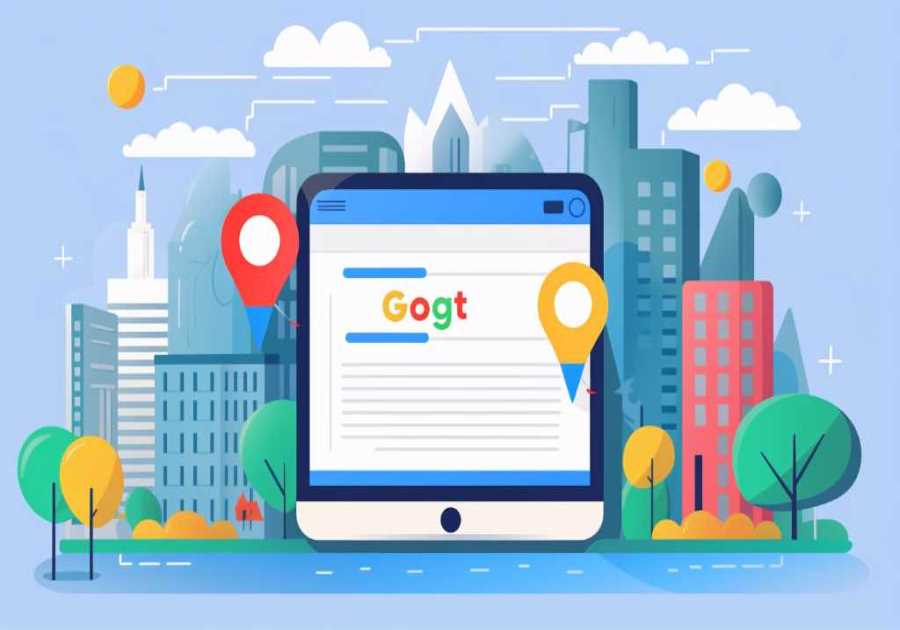
What Jobs Won't be Replaced by AI: Future-Proof Careers in a Digital Age
The advent of artificial intelligence (AI) has brought about a significant shift in the labor market, raising concerns over which jobs may become obsolete due to automation and AI technologies. Despite these advancements, certain professions remain largely immune to this technological takeover. These jobs typically require a level of human empathy, creativity, or complex decision-making that AI cannot replicate. Industries such as healthcare, education, and creative arts see AI as a tool that augments human capability rather than replacing it entirely.
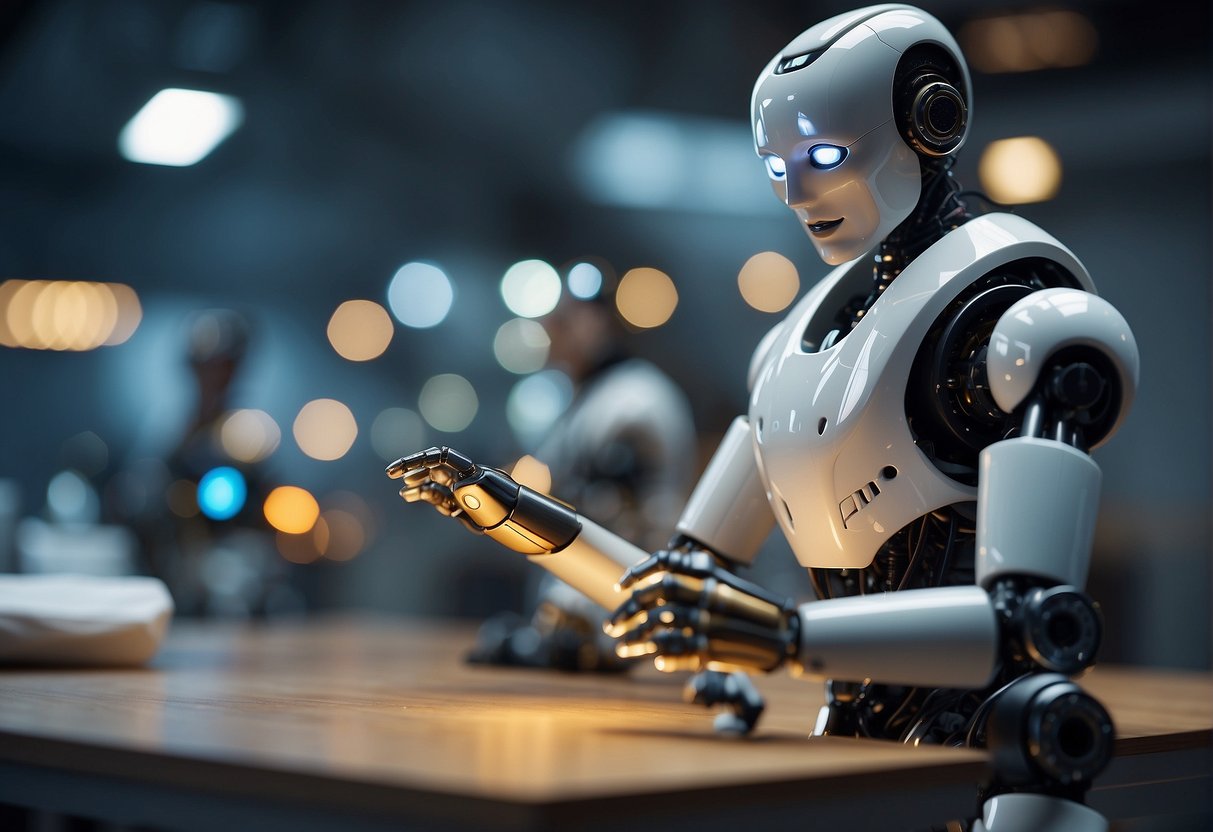
In contrast, other technological adaptations in areas like the legal sector and human resources present both challenges and opportunities, as AI streamlines some tasks while highlighting the need for human judgement in others. The economic impact of AI on job markets continues to be a widely discussed topic, projecting a future where work is not eliminated but transformed. As the professional landscape evolves, understanding which jobs stand firm against the tide of AI becomes crucial for career planning.
Key Takeaways
- Certain jobs demand human qualities AI cannot emulate.
- Technological advancements transform rather than replace some professions.
- AI's impact on the economy reshapes the future of work.
Jobs Impervious to AI
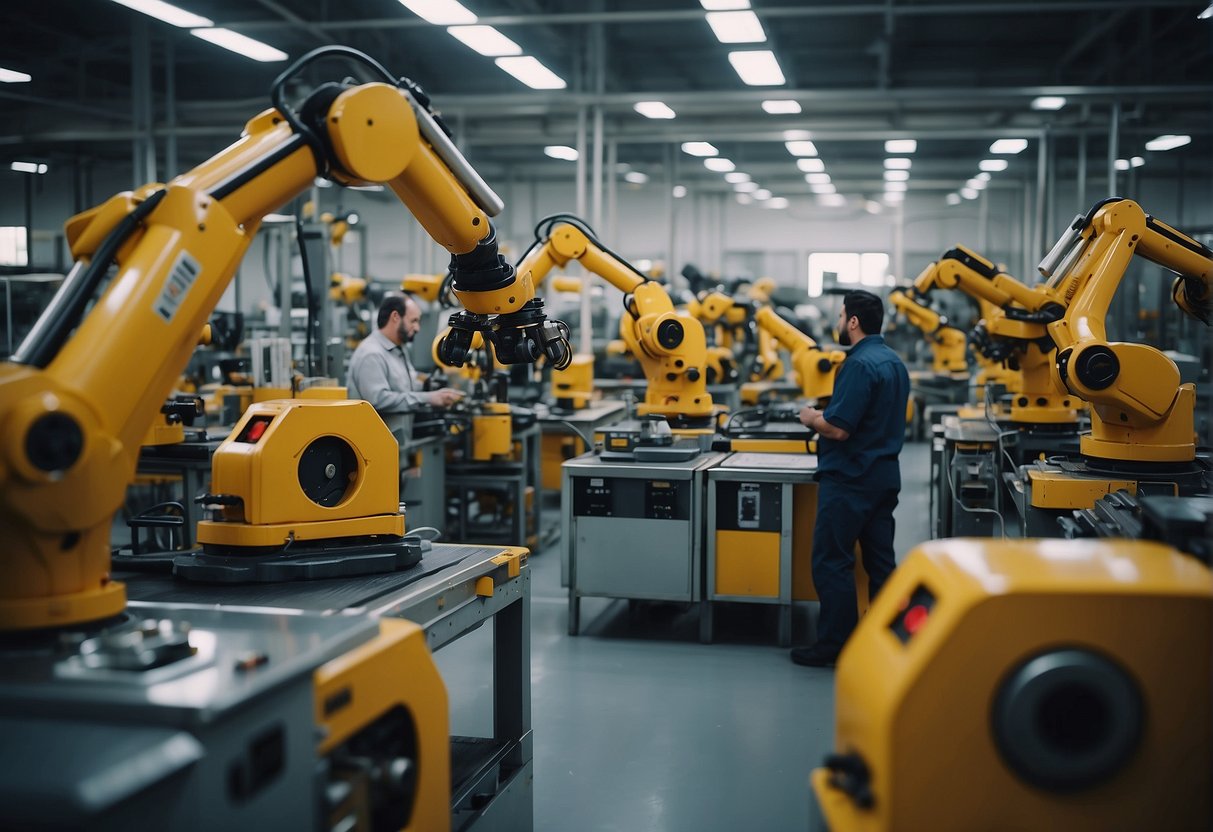
As artificial intelligence (AI) integrates into various sectors, there remain professions that are less likely to be automated due to inherent qualities that AI cannot easily replicate. Critical thinking, creativity, and emotional intelligence are essential aspects of these roles, which are challenging for AI to emulate.
In the realm of mental health, therapists provide a unique blend of empathy and support that AI has limitations in matching. The therapeutic process relies on interpersonal connection, deep understanding of human emotions, and the ability to provide comfort that AI cannot offer. Consequently, therapists play irreplaceable roles in interpreting nuanced human behaviors and channeling emotional intelligence effectively.
At the helm of organizations, the role of a CEO exemplifies leadership that AI cannot replace. A CEO's duties encompass not just decision-making and governance, but also human work such as inspiring employees, driving the organizational vision, and maintaining stakeholder relationships. Executive functions like strategizing and negotiating are steeped in complex human interactions and are beyond current AI capabilities.
Jobs that demand a high level of creativity continue to elude automation. Positions such as designers, artists, and innovators rely on original thought and the creation of new ideas, which are inherently human traits. While AI can support the creative process, it is the human who ultimately directs and refines the creative vision.
Professions where critical reasoning is essential, such as judges or scientific researchers, require a sophisticated level of discernment and critical thinking. These roles involve evaluating multiple variables, understanding contextual subtleties, and making decisions based on complex ethical considerations, something AI is not geared to autonomously handle.
In summary, jobs with a strong reliance on complex human attributes like emotional intelligence, creativity, and critical thinking are less prone to AI replacement. These roles capitalize on the distinctive and intricate capabilities of the human mind, affirming their staying power in the future workforce.
Healthcare and AI
In the realm of healthcare, the integration of AI tools serves to support, not supplant, the critical roles of medical professionals. The unique capabilities of human touch, empathy, and ethical decision-making remain irreplaceable, particularly in areas requiring compassionate care.
Doctors and Compassion
When patients face health challenges, especially severe diagnoses such as cancer, the role of a doctor extends beyond clinical expertise to embodying compassion and empathy. They forge a bond of trust through face-to-face interactions, providing not just treatment but also support and reassurance that AI cannot replicate.
Mental Health Professionals
Mental health professionals play a pivotal role in addressing psychological well-being, where human connection is paramount. The nuances of verbal and nonverbal communication involved in therapy are unique to human interactions, and the deep understanding required to navigate these therapeutic relationships lies beyond the reach of current AI technologies.
Scientific Researchers
Scientists—the backbone of medical innovation—rely on creativity and critical thinking skills to solve complex biological puzzles. While AI may accelerate data analysis, the formulation of hypotheses and the design of experiments are driven by human curiosity and insight, ensuring that scientists remain at the forefront of medical breakthroughs.
Education and AI Influence

Artificial Intelligence (AI) is poised to complement the education sector rather than replace it. Teachers' unique capacity for adaptability and creativity secures their role as integral to education.
Teachers and Adaptability
Teachers exhibit a proficiency in adaptability that AI cannot emulate. They tailor learning experiences to individual students' needs, fostering an environment where creativity and interpersonal skills flourish. AI, while a powerful tool in providing adaptive learning platforms, still relies on the discernment of teachers to guide and interpret its data effectively.
Research and Development
In the realm of research and development, AI acts as an enabler, enhancing the methods and speed at which educational research is conducted. It provides educators with new insights into pedagogical effectiveness and student engagement. However, it's the teachers who apply this research to create more impactful curricula and interactive learning experiences that AI alone cannot design.
Creative Professions and AI
The interplay between AI and creative vocations hinges on the inherent need for human creativity and emotional intelligence, which are crucial for producing original and relatable content.
Graphic Designers
Graphic designers leverage their artistic insight to create visual concepts that inspire, inform, or captivate consumers. While AI can assist in generating templates and basic designs, the nuanced understanding of cultural subtleties and audience preferences remains a human task. For branding and advertising, professional designers evaluate trends and apply their unique artistic touch, a process not entirely replicable by algorithms.
Content Creators
Content creators in journalism and content creation fields do more than compile information; they craft narratives that resonate with human experiences and emotions. They curate and combine text, video, and audio to engage audiences—tasks that require a deep understanding of human context, moods, and social nuances. AI may support with data analysis and initial drafts, but the final storytelling arc is authored by people.
Actors and Performance
Actors and performers bring scripts to life, using their body language, voice modulation, and emotional expressiveness to convey complex human stories and relationships. Emotional depth and the ability to connect with an audience are aspects of performance that AI has yet to master. The subtleties of a lived-in performance, which can move an audience, are the forte of human talent.
Legal Sector's Adaptation to AI
The introduction of artificial intelligence in the legal sector underscores its potential to assist rather than replace human workers through the enhancement of efficiency and precision. AI's limits in ethical judgment and emotional intelligence reaffirm the irreplaceable value of lawyers and paralegals in the field.
Lawyers and Ethical Judgment
Lawyers' roles are significantly rooted in critical thinking and ethical judgment, which are elements that AI, with its current capabilities, cannot emulate. Their work involves interpreting the law, advocating for clients, and making nuanced decisions that consider moral and societal implications. For instance, the intricate nature of courtroom proceedings demands a level of emotional intelligence and human understanding well beyond a machine's capacity. This aspect of the profession assures their indispensability, as highlighted in a discussion about the resilience of the legal field in the age of AI.
Paralegals and Detail-Oriented Work
Paralegals, while benefiting from AI for tasks such as document review and legal research, continue to provide detail-oriented work that relies on a human touch. The subtleties of examining evidence and drafting legal documentation necessitate a nuanced understanding that AI is not fully equipped to handle. The complexity of legal proceedings still demands their meticulous attention to detail and an ability to respond to the unpredictable nature of human behavior and judicial processes.
Human Resources and AI Challenges

In the dynamic environment of human resources (HR), artificial intelligence (AI) can offer assistance but cannot usurp the nuanced roles that require emotional intelligence and trust-building capabilities. Corporations still heavily rely on HR specialists to navigate complex human relations and workplace culture, aspects which AI is ill-equipped to manage.
HR Specialists
HR specialists stand at the forefront of the corporate workspace, endowed with the task of managing interpersonal relations and ensuring the workforce remains engaged and productive. Despite AI's advancing capabilities, the emotional intelligence exhibited by HR professionals is irreplaceable. HR roles require a deep understanding of social dynamics, something that cannot be replicated by algorithms. They cultivate trust within an organization, a crucial element that binds corporate cultures together. AI tools can manage data and automate routine tasks, but they cannot negotiate the subtleties of human interaction that HR specialists navigate daily.
Psychological Insights
AI's analytical prowess falls short when it comes to providing psychological insights, an area where human HR experts excel. The assessment of an employee's mental well-being, motivation, and job satisfaction necessitates a level of empathetic engagement beyond AI's scope. HR professionals wield a combination of intuition and experience to gauge the undercurrents of employee morale and team dynamics, which are pivotal to maintaining a supportive environment. Indeed, corporations acknowledge the gap AI cannot bridge; this human insight fosters a resilient and adaptable workforce.
By maintaining a human-centric approach in HR, corporations can ensure that the human element – crucial to creativity, innovation, and collaboration – remains at the heart of their culture and operations.
Economic Impacts of AI

The advent of AI heralds significant shifts in the labor market and industrial practices. With a focus on specific sectors and overarching economic trends, this section delves into the nuanced interplay between AI-driven changes and their consequent economic impacts.
Job Growth and AI
Job growth in the era of AI is expected to be uneven across sectors. For instance, the World Economic Forum anticipates sectors like agriculture, lorry driving, and education to experience some of the highest growth rates between 2023-2027. This projection underscores the complex nature of job growth in a technology-driven economy, where AI complements rather than replaces certain types of employment.
- Agriculture: AI's role is mostly augmentative, enhancing productivity rather than directly leading to job displacement.
- Lorry driving and transport: AI aids in route planning and logistics, but fully autonomous vehicles are not yet widespread.
- Education: While AI can offer personalized learning experiences, the demand for human educators remains robust.
Industry Transformation
Industries across the board, particularly manufacturing and finance, stand on the precipice of transformation due to AI innovations. In manufacturing, AI optimizes operations, leading to more efficient production lines and smarter supply chain management.
- Manufacturing: Implementation of AI can cut down production waste, easing global resource strains.
- Finance: AI is crucial in analyzing market data, yet human oversight is imperative for nuanced decision-making.
As AI reshapes the economic landscape, organizations including the World Economic Forum are engrossed in steering the global agenda to harness AI's potential while mitigating risks. The finance sector showcases this balance, leveraging AI for computational tasks while valuing human judgment for complex financial advisory roles.
AI and the Future of Work
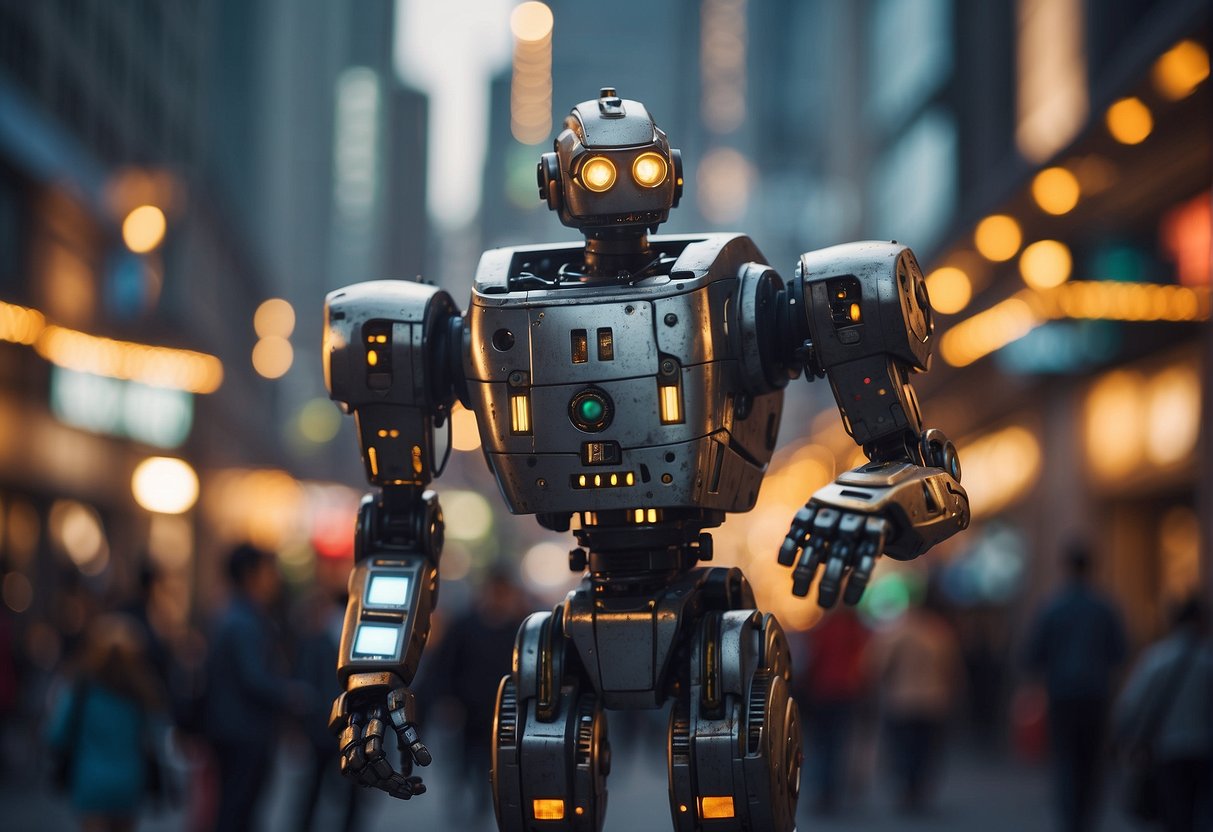
Advancements in AI are reshaping the landscape of employment. Certain positions, particularly in white-collar work, are facing significant changes due to automation and AI technologies.
Workplace Automation
Workplace automation powered by AI is transforming the way tasks are executed, especially routine and repetitive ones. In white-collar sectors, software developed by companies like Microsoft and Google is increasingly adept at sorting through data, managing emails, and even writing basic reports. This shift promotes efficiency but also necessitates a re-evaluation of job roles. For example, AI's integration into autonomous vehicles suggests that driving jobs may transition away from manual control to more supervisory roles, monitoring vehicle systems.
Strategic Human Roles
Despite the surge in workplace automation, there remain strategic roles where human insight is irreplaceable. Complex decision-making, emotional intelligence, and creative thinking are areas where humans excel. Tech companies are aware that while AI can analyze patterns, the strategic direction often hinges on human leadership and intuition. It is noted that AI is not poised to replace jobs requiring deep expertise in human behavior, like those in psychology and high-level management.
Frequently Asked Questions
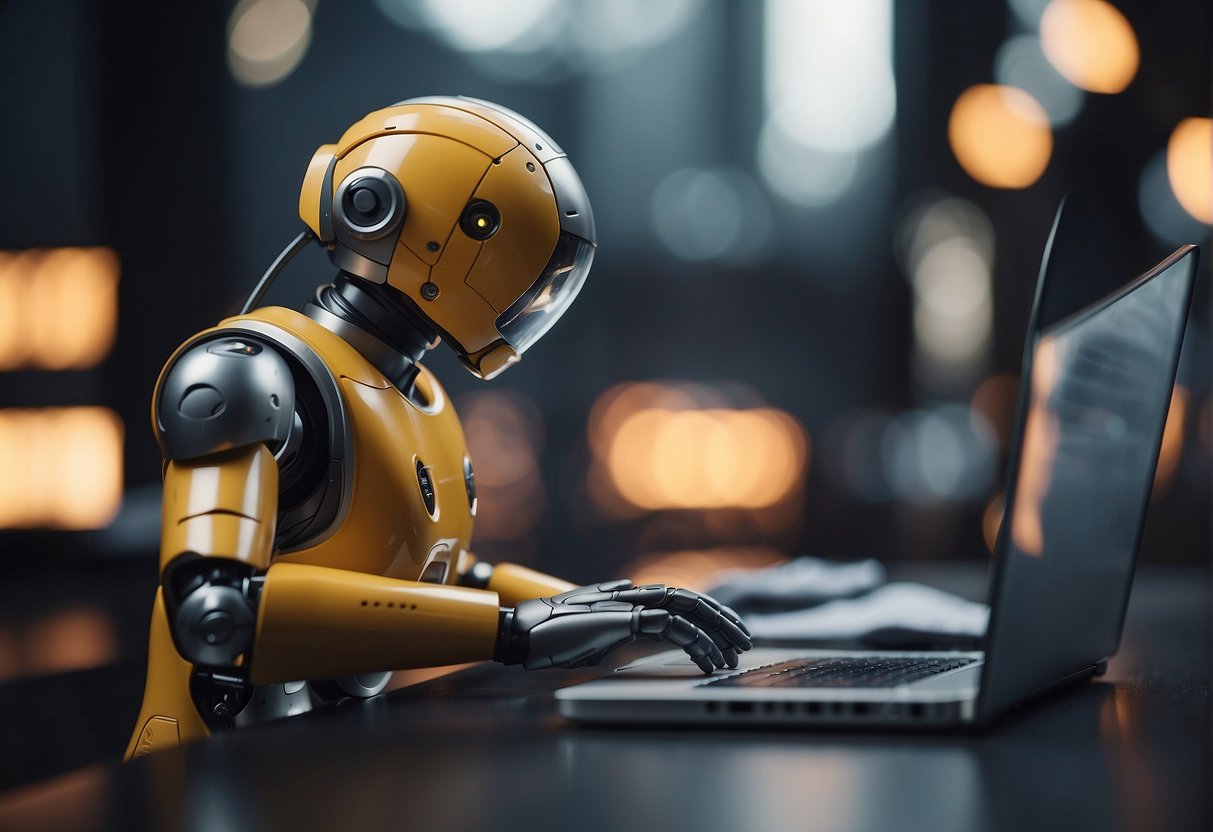
As artificial intelligence continues to evolve, the impact it will have on the job market is a growing concern for many. This section addresses common inquiries regarding the professions that are likely to remain essential and those at risk of automation.
Which professions are considered AI-proof and unlikely to be automated?
Certain professions are deemed AI-proof due to the intricate human elements they require, such as critical thinking and empathy. For instance, roles in mental health and social work are difficult to automate, as they rely heavily on human interaction and emotional intelligence.
What are some examples of white collar jobs that are expected to remain secure from AI disruption?
White collar jobs requiring high levels of creativity and strategic decision-making, like those in research and development, are expected to withstand AI disruption. Roles that demand nuanced judgment and novel idea generation tend to be less susceptible to automation.
Can you identify the fields of engineering that are less susceptible to being supplanted by AI?
Certain engineering fields, especially those involving on-site problem-solving and adaptability such as civil and environmental engineering, are less susceptible to automation. AI struggles to replicate the multifaceted decision-making these roles require.
Could you list jobs that technology, including AI, is unlikely to replace?
Jobs that involve high-stakes decision-making, unpredictable environments, or profound human empathy, like nursing and emergency response, are unlikely to be replaced by technology, including AI, due to the need for real-time assessment and emotional intelligence.
What occupations are facing the highest risk of replacement by AI, and what makes others less vulnerable?
Simple, repetitive tasks in occupations such as assembly line work or data entry have a high risk of replacement due to AI's efficiency in performing routine jobs. In contrast, occupations requiring personal care and complex human interaction remain less vulnerable.
What is the estimated number of jobs that may be affected by AI automation by the year 2030?
Estimations suggest that millions of jobs could be affected by AI automation by 2030. The extent of this impact may vary significantly across industries and geographic regions, with routine and manual jobs facing the highest automation risk.
Frequently Asked Questions
How does AI contribute to cost-effective marketing strategies for small businesses?
AI helps small businesses save on marketing expenses by automating various functions, reducing the need for additional staff, and cutting down on the time required to perform marketing analysis. With AI, small businesses can achieve a higher return on investment through targeted campaigns and improved customer acquisition strategies.
What are the benefits of using AI in email marketing for small businesses?
AI streamlines email marketing by personalizing content for individual subscribers, optimizing send times for maximum open rates, and segmenting audiences to ensure relevant messaging. This leads to higher engagement, improved conversion rates, and can save small businesses time and resources.
How can AI enhance marketing for small businesses?
AI can be a significant asset for small businesses by automating routine marketing tasks, personalizing customer experiences, and providing data-driven insights. Tools like chatbots, email automation, and customer segmentation can help small businesses to effectively engage with their audiences and make smarter marketing decisions without needing large budgets or extensive manpower.
What roles can AI play in content creation and curation for small businesses?
AI tools can assist in content creation by suggesting topics, generating draft content, and optimizing keywords for search engine ranking. For content curation, AI can analyze user behavior to recommend and prioritize content that resonates most with the target audience, ensuring that marketing efforts are more effective and time-efficient.
What are some of the ethical considerations small businesses should keep in mind when using AI in marketing?
Small businesses should ensure transparency in how they collect and use customer data, respect privacy laws, and avoid biases by employing diverse training datasets. It is also important to use AI responsibly by not manipulating customer behaviors unethically and by maintaining a genuine commitment to customer well-being.
Statistics
- Email marketing campaigns that utilize AI for personalization experience an open rate increase of up to 40% over non-personalized campaigns.
- The adoption of AI in marketing within small businesses is expected to grow by 25% over the next two years.
- E-commerce small businesses employing AI for customer service have reported a 10% reduction in cart abandonment rates.
- A study indicates that 60% of small business leaders believe AI solutions can lead to improved customer retention rates.
- AI-driven predictive analytics tools have helped 35% of small businesses in identifying potential new markets.
External Links
- Marketing AI Institute provides a comprehensive look at the application of AI in marketing for businesses looking to adopt these technologies.
- The IBM Watson Advertising page discusses how AI technology can advance advertising efforts for businesses of all sizes.
- Google Analytics offers data analytics tools powered by AI to help small businesses gain insights into their web traffic and marketing effectiveness.
- Mailchimp's Marketing Automation page offers information on how small businesses can use AI for personalized email marketing.
- Shopify discusses the impact of AI on e-commerce, showing small business owners how to implement AI in online retail.
How To
How to Improve Customer Insights with AI-Driven Analytics
To improve customer insights, integrate AI-driven analytics tools that can process complex customer data effectively. With these tools, track customer behavior across your digital channels and use machine learning to identify key customer segments. Gain detailed insights into the customer journey, and enable predictive modeling to forecast future behavior and preferences. Use these AI-derived insights to tailor your marketing strategies, and offer more relevant, personalized experiences to your customers.
.png)



